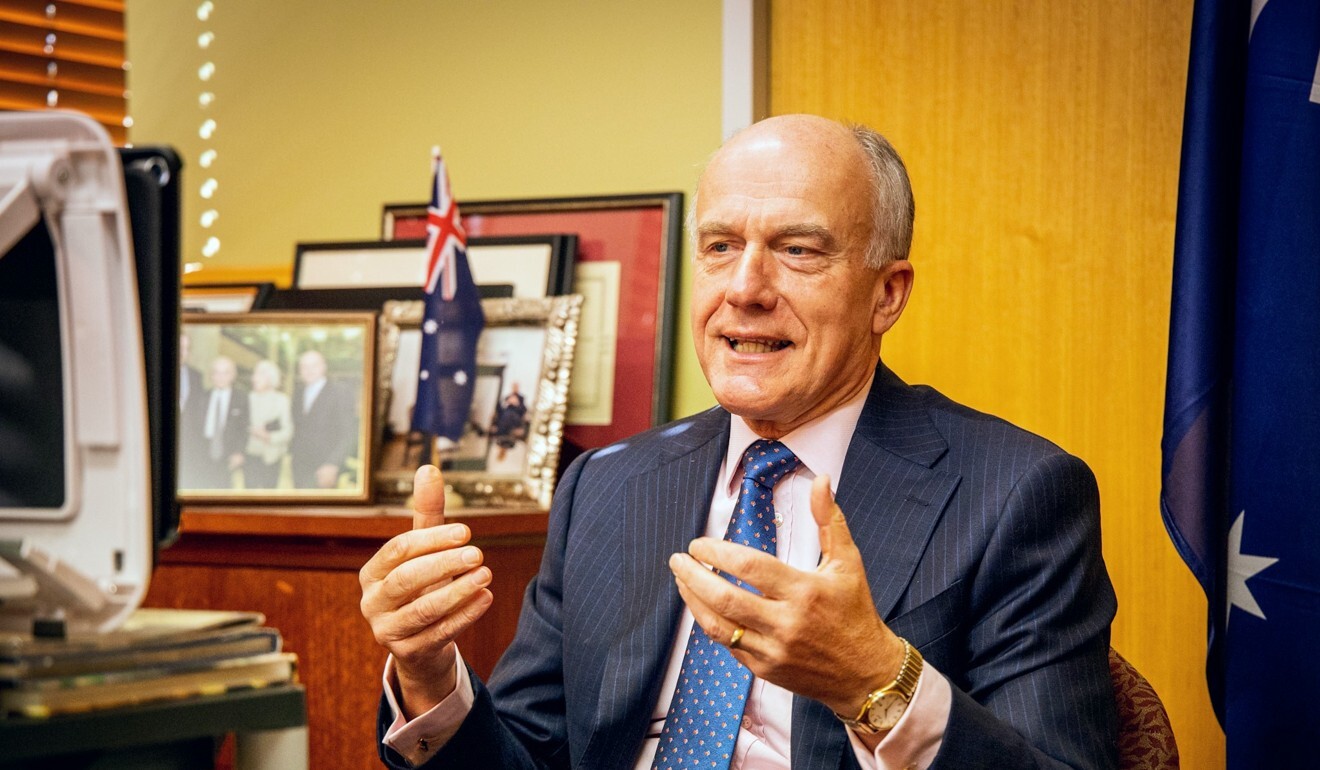
Canberra’s top foreign affairs bureaucrat accuses China of seeking to stoke ethnic divisions in Australia
- Frances Adamson says Beijing wishes to project an image of Australia as intolerant and discriminatory, urging awareness in how domestic discussions can be portrayed
- While some have welcomed her remarks, others say she is invoking the spectre of China rather than criticising a controversial recent questioning of Chinese-Australians
However, there have been mixed reactions to the comments by Frances Adamson, Secretary of the Department of Foreign Affairs and Trade, with some saying she highlighted the political value of not appearing intolerant rather than urging tolerance.
Senator insists Chinese-Australians condemn CCP at inquiry on diaspora issues, sparking backlash
“This is not the way we want to be, or the way we want to be portrayed,” she told a budget estimates hearing in the Australian Senate. “There is no easy answer to this but it’s something we possibly need to consider.”
Adamson said that while information she saw in Chinese state media about Australia did not reflect “what I know to be the reality”, Australians needed to be “conscious” of how they projected themselves.
“The Chinese are increasingly resorting to projecting not only in their own country but potentially elsewhere, images of Australia which do not, to my mind … represent who we are,” she said, adding that Beijing saw the Chinese diaspora overseas as “ultimately being Chinese” and had “certain expectations” of them that were not necessarily shared by Chinese-Australians.

03:39
Australia’s last two accredited journalists in mainland China evacuated as diplomatic ties worsen
During a Senate hearing on issues facing diaspora communities earlier this month, Liberal Party backbencher Eric Abetz repeatedly asked the three if they would “unequivocally condemn” the party. Wesa Chau, a candidate for deputy lord mayor of Melbourne, later described the questioning as “race-baiting McCarthyism”, while Osmond Chiu, a research fellow at the progressive think tank Per Capita, decried the incident as a “‘gotcha’ loyalty test”.
Departure of Australian journalists from China seen as ‘terrible blow to mutual understanding’
Abetz denied questioning the loyalty of the three Australian citizens, insisting that “standing firm against ugly dictatorships is everyone’s duty”.
Chiu, the research fellow, said he thought Adamson’s remarks were a “measured” reminder of the need to debate the Australia-China relationship with care.
“It is a difficult issue to work through but public figures need to remember they do not control how their words and actions may be portrayed,” he said. “She reminded the senators that rhetoric that may be considered racist or intolerant could be used for political purposes by the People’s Republic of China, which goes against Australia’s broader national interest.”

Yun Jiang, whom Abetz also asked to condemn the Communist Party, also said she appreciated the foreign affairs secretary’s remarks.
“Senator Abetz, by pursuing his line of questioning, has made the job much easier for Chinese propaganda,” said Jiang, who is director of the China Policy Centre in Canberra.
But Erin Chew, co-founder and national convenor of the Asian Australian Alliance advocacy group, said it was “dangerous” for Adamson to suggest China was out to divide Australians at a time of rising anti-Asian sentiment.
“Of course Adamson can’t or has refused to see this as an issue and has instead placed the blame on what the Chinese government is feeding its own people,” she said.
Chinese academics in Australia shocked, fear ‘chilling effect’ after Canberra revokes visas of two scholars
“It would have been better for Adamson to admit that Australia indeed has issues around racism and discriminating against different communities, but that that does not reflect the entire country. Instead, she is going on the defensive, and this will make the Chinese government use this issue more to their advantage. The fact that she has basically denied racism as an issue will only make the situation worse.”
Chengxin Pan, associate professor of international relations at Deakin University, said Adamson’s comments appeared to be aimed “rather vaguely and indirectly at people like Eric Abetz”.
“Instead of openly criticising Abetz, she chose to invoke the spectre of China, a message which would go down well domestically,” Pan said. “If her warning about China was true, you’d expect that the Chinese state media would be all over this recent drama, but except for [nationalistic tabloid] Global Times and a few online platforms such as Sohu, there is little coverage of it in the Chinese media.”

